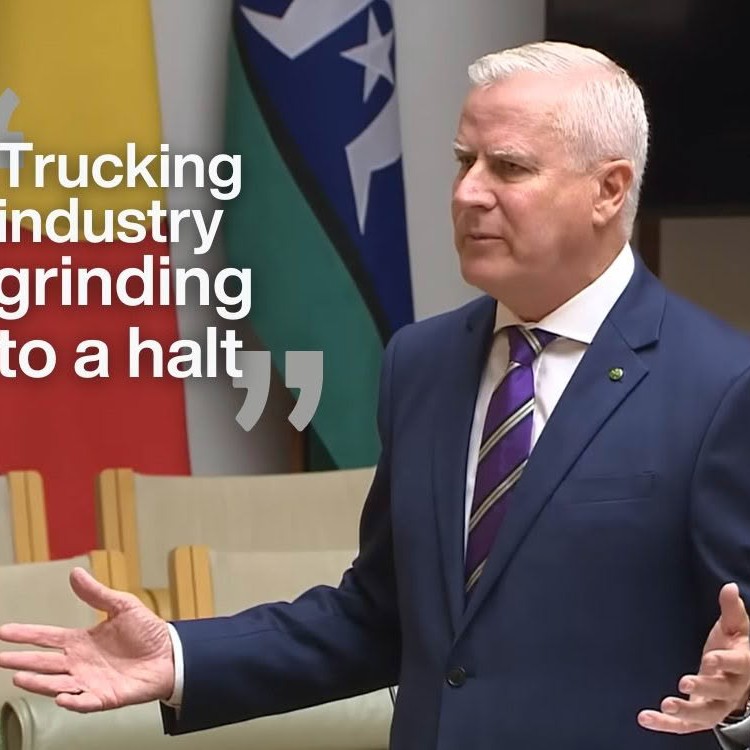
It’s been another big week, with our webinar about the Terms of Trade on Wednesday and yesterday’s Budget which made some big commitments to roading which will have a big impact on the road freight sector, and for NZ Inc.
It’s great to hear that the Budget has confirmed increased funding for big roading and infrastructure projects.
Roads in New Zealand have been desperately under-funded for decades so new investment in highways, including national and regional roads of significance, is desperately needed.
Kiwis can’t continue to put up with deteriorating roads that are jeopardising economic growth, which is vital for the community and businesses.
Investments in transport and tax relief will be welcome news to a lot of members. The Budget announced the government will spend $1 billion to accelerate land transport projects including Roads of National Significance.
This is on top of $3.1 billion already signalled in the Government Policy Statement. Other transport investments include $939 million to repair roads damaged by last year’s severe weather events in the North Island, and $200 million for maintenance and renewals on the national rail network.
Another $1.2 billion will go to the new Regional Infrastructure Fund, and the government will also establish a National Infrastructure Agency.
Road transport operators are reporting low demand and increasingly tough economic conditions. Feedback from Transporting New Zealand’s members, and the range of different economic indicators clearly illustrate the challenges the industry and wider economy is facing.
Members report challenging economic conditions
Transporting New Zealand is hearing from many members who have seen revenue drop significantly over the past few months. Many trucking firms haven’t seen the traditional post-Christmas uptick in business, with bulk and aggregate and logging operators some of the worst affected.
Transporting New Zealand account manager, Lindsay Calvi-Freeman, has been checking in with members across the lower North Island, and says he’s getting a mixed picture during his calls.
“I’ve spoken to members with their revenue down 40 per cent on last year, and others who have been forced to lay off staff, the last thing anyone wants to be doing. Fortunately, there are a reasonable number of operators reporting reasonably steady demand, but almost everyone has noticed an impact.”
Fellow account manager, Odette Geyer, says the pain is being felt across the supply chain:
“We’re seeing an increasing number of liquidations, as the cost of lending and reduced business confidence starts to bite. Last week we saw three transport liquidations announced in three days. The road freight industry also supports a whole range of suppliers, and so tough conditions for our members have a big flow-on effect.”
Vicki Harris, who manages Transporting New Zealand’s member benefits and commercial partners, says she has noticed an increase in members looking for savings across fuel, insurance and supplier services.
“It’s really tough out there at the moment. A lot of members are looking to cut expenditure and maximise their bang for buck. We’re seeing a good number of referrals through to Transporting New Zealand’s supplier discount schemes, including fuel and tyre retailers.”
Economic indicators
The tough operating conditions reported by trucking operators are supported by the latest economic data. The Reserve Bank noted in its May 2024 Monetary Policy Statement that economic indicators have been weak, as growth remains subdued. The Reserve Bank isn’t forecasting an Official Cash Rate cut and associated interest rate relief until mid-2025.
The April 2024 ANZ New Zealand Business Outlook survey reported business confidence fell across every sector from March to April 2024. The March 2024 NZIER Quarterly Survey of Business Opinion showed net 23 per cent of firms reported a decline in activity over the March quarter. This is in line with the feedback Transporting New Zealand is receiving from members.
There was some more welcome news in the May 2024 ANZ Truckometer, showing the heavy traffic index up 3.3 per cent higher than 12 months ago (using a three-month average), and rising 0.3 per cent month-to-month. The heavy traffic index tracks the flows of vehicles weighing more than 3.5 tonnes on 11 key roads, and has a strong relationship to GDP. However, the Truckometer doesn’t reflect factors like reduced loads, or vehicle movements outside of those identified routes, that will both be impacting Transporting New Zealand’s members and the wider road freight industry.
Road freight sector remains resilient
We’re still confident the road freight industry will navigate the difficult economic conditions, as they have with previous challenges.
Over the past few years, we’ve seen road freight operators successfully deal with the Covid pandemic and severe pressures on the supply chain, acute driver shortages and cost pressures, and now the dual challenges of an economic recession and continued inflationary pressure. Things are tough, but road freight firms are very resilient.
Terms of Trade
 Wednesday’s online seminar about the Terms of Trade by Jason Kelly and Fenella Smith from law firm Ford Sumner looked at what are the options for contracts for the Carriage of Goods.
Wednesday’s online seminar about the Terms of Trade by Jason Kelly and Fenella Smith from law firm Ford Sumner looked at what are the options for contracts for the Carriage of Goods.
A lot of work is done in our sector based on verbal agreements, which is fine most of the time.
But as our policy advisor Billy Clemens says, there are times when contracts just make life easier. For instance, during Covid when RUC was reduced, some customers were automatically deducting the reduced RUC from their payments. When members wanted some help and didn’t have a contract, there wasn’t much that could be done.
We’ll be covering some of the questions asked in the webinar so we can share useful info on how to look after yourself and your business.





